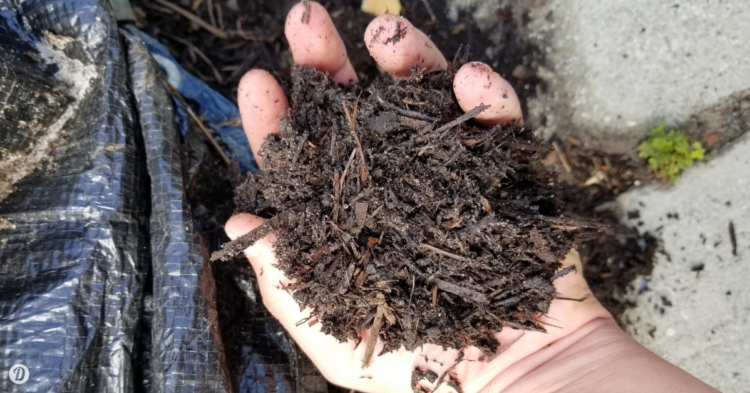Unless you happen to have a heap of money and/or connections to get yourself shot into space, chances are you have two options for what happens to you after you die: Burial or cremation.
There’s a growing movement, however, to provide a third option: Becoming a growth medium. That’s right, this is thinking outside the box and beyond the urn to get a bit more literal with the whole ‘earth to earth’ thing.
In Washington State, lawmakers are weighing whether to make that third option of composting human remains a legal reality.

As odd as it might sound, there are many arguments to be made in favor of human composting, or as it has come to be known, “recomposition.”
For one thing, burial isn’t always as neat and clean as it might seem.

The big issue is with the coffins, which have been shown to leach chemicals and minerals into the soil they’re buried in. A study of a cemetery in South Africa determined that the soil there had been contaminated by all the coffins, creating a “potential health risk” to local groundwater.
Cremation isn’t much more desirable either.

Obviously burning things creates emissions, and cremation is no different. Those emissions are filtered, but even so, one body takes about 28 gallons of fuel to burn, and creates 540 pounds of carbon dioxide — cremation in the U.S. adds about 250,00 tons of CO2 to the air every year.
So, naturally, many people are seeking a more environmentally sensitive alternative for their remains.

Recomposition works without creating any emissions and without any harmful chemicals ending up in the soil.
It’s akin to what’s often already done with livestock on some farms, a practice known as mortality composting or carcass composting. Of course, humans aren’t livestock, but the principle is similar.
Recomposition would see human remains placed in a large cylinder with organic material like straw or wood chips, where everything spends a month breaking down.

You would be left with about a cubic yard of nutrient-rich compost to do with as you please, like using it to plant a tree in your loved one’s memory or spreading in a beloved park.
Recomposition is also a more affordable alternative to burial.

Recompose , a public-benefit corporation in Washington State researching and developing recomposition, would charge $5,500 for its services, while the median traditional burial in the U.S. cost $7,360 in 2017.
Mind you, this isn’t an option for everyone.

Certain diseases such as anthrax can survive the composting process, so people who contracted such illnesses wouldn’t be candidates for recomposition.
However, the bill in Washington State that would allow recomposition would also legalize another option for disposing human remains: Alkaline hydrolysis.
That’s a mouthful, but it’s a simple process, although not quite as romantic.
Basically, alkaline hydrolysis uses water and lye, in a pressurized vessel, to reduce remains to nothing but liquid and bone. If you think that sounds a bit Breaking Bad , I can’t disagree.
Democratic State Senator Jamie Pedersen, who’s sponsoring the bill, tried a previous version of the bill with just alkaline hydrolysis and not recomposition in 2017, but it failed.
With recomposition now added to the bill and the state Senate and governor’s mansion under Democrat control, the bill might stand a better chance of passing.

And if it does pass, Washingtonians would be the first people in the country to have the option of becoming compost after they pass as of May 1, 2020.
h/t NBC News

















































